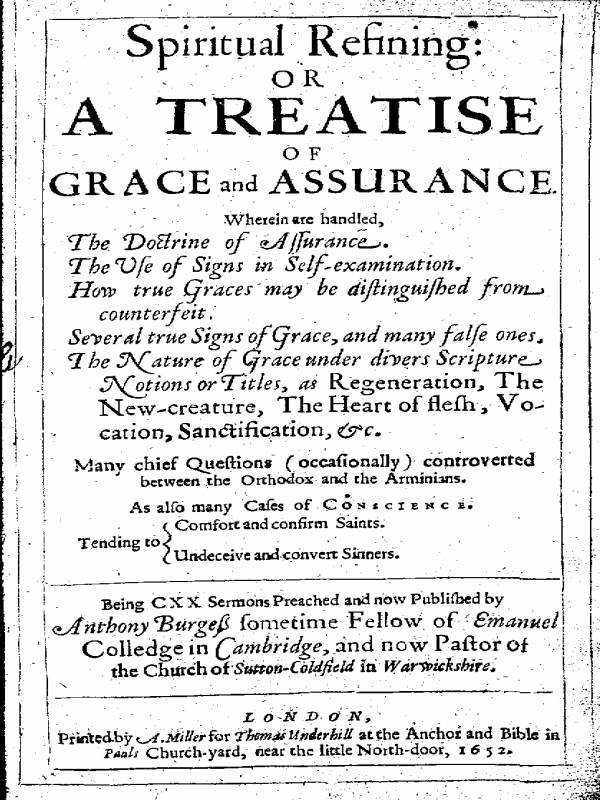In Sutton in the 1630s religion was a hot topic - wars of religion had been rumbling on in Europe for thirty years, and there was a widespread sense that protestantism was under threat from the Roman Catholic church. The King James Bible of 1611 gave everyone who could read access to the scriptures, and in turn stimulated the desire to read in the population at large. Puritan ministers, such as Anthony Burgess, Rector of Sutton Coldfield, were concerned that the church hierarchy - King, archbishops, bishops - was imposing more and more ceremonial rules which smacked of popery, and everyone had a view on the issue.
Anthony Burgess was a preacher at a time when preachers could attract large crowds and when preaching was seen as tending to be subversive. Thomas Hall, the Kings Norton diarist, records that he was a diligent frequenter of the learned lectures of “sundry orthodox divines” at Birmingham, and it was at Birmingham that Thomas Dugard, Master of Warwick School, on his way to Staffordshire, stopped to hear “the eminent preacher Anthony Burgess of Sutton Coldfield”. When the Civil War began in earnest in 1642, Burgess feared he would be a target for the Royalist forces, and moved to Coventry, a parliamentary stronghold, and then to London. He preached to Parliament on several occasions, urging the defence of the reformed church and the iniquity of the high church royalists.
He was a chaplain in the New Model Army, and although he returned to Sutton Coldfield when Parliament was victorious, he was often away - one of his duties under the Commonwealth was as “Commissioner for Warwickshire for the ejection of scandalous, ignorant and insufficient ministers and school-masters”. His sermons were in still in demand - he preached before the Lord Mayor of London in 1656, and many of his sermons were published. In 1657 his funeral discourse on the death of a Staffordshire minister ‘obtained a popularity which is reported to have been unprecedented even in that sermon-hearing era’.
Burgess, son of a Watford schoolmaster, was a fellow of Emmanuel College, Cambridge, and was presented to the Rectory of Sutton Coldfield in 1635. The Sutton Parish Register records the birth of five children to “Mr. Anthony and Sarah Burgess”, and he is named as officiating at marriages in the 1650s. Riland Bedford wrote “His personal character was of the highest. He was earnestly pressed by Bishop Hacket to accept a post of distinction in the Church after the Restoration & recommended for Bishop of Hereford, but his objection to the Episcopal form of church government prevented him from accepting the Act of 1662”. Burgess refused to subscribe to the 1662 Act of Uniformity and was ejected from the Rectorship of Sutton; he was one of two thousand clergymen ejected for dissent at this time. He retired to Tamworth; the Sutton Coldfield Parish Register reads “28th September 1664 - Mr. Anthony Burgess late Pastor of Sutton Coldfield was buried in the church of Tamworth.”
